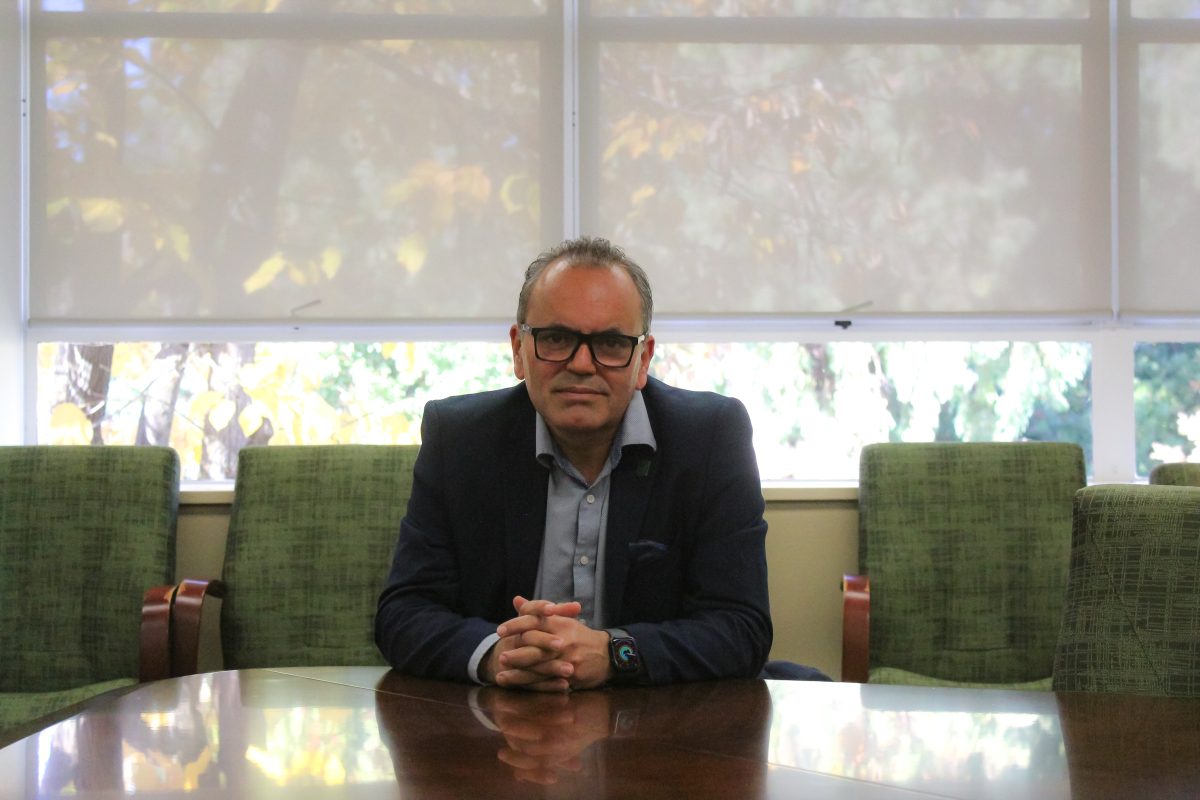Gov. Gavin Newsom signed Assembly Bill 656 into law, which allows California State University campuses to offer independent professional and applied doctoral degrees on Oct. 10.
Sacramento State expressed enthusiasm over AB 656 being passed, releasing a joint statement from President Luke Wood, Interim Provost and Vice President of Academic Affairs Carlos Nevarez, Associate Vice President for Research, Innovation and Economic Development Mariappan Jawaharlal and Dean of Graduate Studies Chevelle Newsome.
Additionally, AB 656 will allow Sac State and other CSUs to explore a more extensive range of doctoral degree options that will become accessible to all students, particularly those underrepresented in STEM fields. All collaborative joint doctoral programs between Sac State and other institutions will remain in place.
Nevarez discussed the specifics and significance of the bill to Sac State.
“I would say it’s a revolutionary change for our system,” Nevarez said. “I would say state-wide and even nationally since it really opens up the system to offer independent professional and applied doctorate degrees across multiple disciplines.”
Nevarez said AB 656 builds upon prior legislation that allowed CSUs to offer doctorate programs to begin with.
“SB 724, known as a Scottsville bill, authorized the California State University system to offer doctorate degrees in a few selected professional areas,” Nevarez said. “For Sacramento State, we offer four doctorate degrees. The first one is in education leadership, we offer a doctorate in audiology and then also a doctorate in physical therapy.”
Nevarez said that with SB 684 signed into law last year, it allowed universities in the CSU system to offer doctorate degrees in Public Health. Nevarez also said there’s a joint doctorate degree in History with UC Santa Barbara.
“So you had SB 724 and then you had SB 684 and now the latest is AB 656,” Nevarez said. “And AB 656 is a game-changer. Why? Because now it allows us to expand the degrees across discipline, even in the STEM areas.”
Regarding expanding doctorate degrees and disciplines, Nevarez said there are current plans at the university.
“There are two new disciplines that we are currently working on,” Nevarez said. “One is in public health and then the other one is in nursing.”
Nevarez also said what the timeline for implementing AB 656 will look like.
“It’s a lengthy process,” Nevarez said. “If I was to give it a timeframe, at minimum, a good year, year and a half.”
Jawaharlal talked about whether there will be efforts to create more financial aid and scholarship options for students pursuing a doctorate at Sac State.
“There are already some existing programs that are unused,” Jawaharlal said. “There’s a pathway program that provides financial support for our students to pursue PhD programs. There are multiple programs and President Wood is very resourceful and he is looking into many other ways to support our students in addition to existing efforts.”
Jawaharlal also discussed the importance of AB 656 and the effect it will have on the student community.
“Forty percent of our students are either Hispanic or Asian Americans,” Jawaharlal said. “So these programs meaningfully impact these marginalized students coming from marginalized communities to not only complete and graduate with a bachelor’s degree but to pursue a higher degree like a doctoral program.”
Jawaharlal said student success at Sac State can also have an impact on the region.
“I want the people to know Sac State makes a great economic impact not only on our students getting jobs but on the community we are in,” Jawaharlal said. “Our students live here, work here, and contribute to the local economy. Sac State is a lot more than a University. It’s an economic engine for the region.
Jawaharlal said these programs would accelerate the growth of this “economic engine.”
Wood said he also shared in the excitement of what the bill means for Sac State.
“The expansion of our ability to grant independent doctoral degrees is great news for our students, for the Sacramento Region, and for California,” Wood said. “Sacramento State will be able to further our mission to transform the lives of our students and their families.”
Wood said the expansion of doctorate programs will affect the impact that Sac State students will have in their communities.
“Broadening access to doctoral degrees will enable individuals to meet their personal and professional goals and give back in meaningful ways to their communities while meeting the need for a diverse and innovative workforce in the Sacramento region and beyond,” Wood said.

























































































































